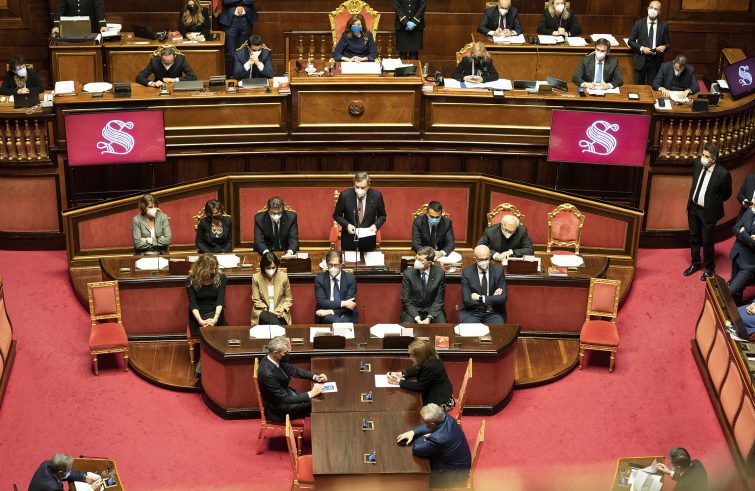
The Italian Senate passed the bill incorporating environmental protection into the Constitution with a unanimous vote (224 ayes, 23 abstentions, no no-votes). It did so in the most solemn way, namely by acting on one of the first twelve Articles that enshrine the ‘”fundamental principles” never revised before. The process is of such legal complexity that it was decided to add a paragraph rather than amend the original text. The Constitution article in question is Article 9, which states, “The Republic promotes the development of culture and of scientific and technical research” and “It safeguards natural landscape and the historical and artistic heritage of the Nation.” The Bill, which includes proposals from various political groups, adds: “It protects the environment, biodiversity and ecosystems, also in the interest of future generations. State law lays down procedures and measures for animal protection.”
However, the absence of any explicit mention of “sustainable development”, a key concept in the European treaties and a cornerstone of the U.N.’s 2030 Agenda, is surprising.
It was given up to obtain the broadest possible consensus (a desirable outcome when it comes to the Constitution) and, according to the Bill’s rapporteur, Senator Alessandra Maiorino, it is incorporated “in substance” in the reference to future generations. A compromise solution was also reached on animal protection. In fact, in order to prevent a blanket statement from colliding with the interests of breeders and hunters, it was isolated in an ad hoc sentence.
The other Article concerned by the revision ( here too for the first time) is Article 41, whereby, according to the Constitution, “private economic enterprise is free”, whose subparagraph 2 states, “It may not be carried out against the common good or in such a manner that
could damage safety, liberty and human dignity.” The text of the reform adds: “health, the environment”. Paragraph 3 states: “The law shall provide for appropriate programmes and controls so that public and private-sector economic activity may be oriented and co-ordinated for social purposes.” The text of the reform adds: “and the environment”.
While highlighting the importance of this political and institutional passage, not least because it serves as a benchmark for an increasingly mindful society, it should be remembered that until now the wording of Article 9, coupled with Article 32, which enshrines the right to health protection, had provided a legal umbrella for both legislative and judicial action, as evidenced by many recent rulings.
As a matter of clarity, it should be said that the protection of the environment and the ecosystem was previously incorporated into Article 117, Paragraph 2 of the Constitution, falling under the exclusive legislative powers of the State pursuant to the 2001 revision. Yet the innovations provided for by the reform currently under approval would clearly play a major role in legislative and government policies. The process has only just begun: the Lower House is set to vote, and both Houses of Parliament are scheduled to vote again after a minimum of three months.












